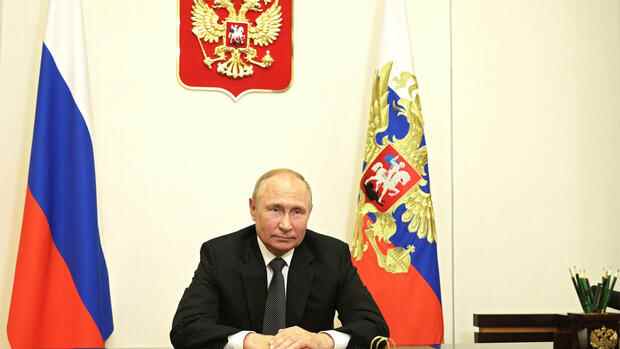On Wednesday, it is exactly six months since Russia invaded Ukraine to deprive the neighboring state of independence, which it traditionally celebrates on August 24th. This year, the residents can at best celebrate that Ukraine still exists.
Russian President Vladimir Putin wanted to thwart this with his attack launched on February 24 in the direction of Kyiv. His declared war goal: removing the leadership of Ukraine, deleting the country from the map, integrating Europe’s largest territorial state into the Russian Federation.
Whether Ukraine will have time to celebrate remains to be seen. Many in the Kiev military leadership expect Russian attacks to be particularly severe on Independence Day of all days. Another concern is growing among the political leadership: that Russia will implement a perfidious plan in the wake of further heavy shelling of Ukrainian cities.
As a result, Turkish President Recep Tayyip Erdogan is said to have conveyed a message from Putin at his most recent meeting with Ukrainian head of state Volodymyr Zelensky last Thursday in Lviv, western Ukraine: an offer to negotiate a peace agreement.
Top jobs of the day
Find the best jobs now and
be notified by email.
Who doesn’t long for peace? No one can bear the images of civilians shot in the back by marauding Russian soldiers in Bucha and Irpin, the suffering of the systematically raped Ukrainian women, the ever-growing number of burnt-out blocks of flats in Ukrainian cities. Six months after the war began, the longing for peace is all too understandable: the sooner it comes, the better.
Hope for a renewed peace dividend
In the vast majority of European countries, a peace agreement is longed for for another reason: so that the fear of a gas crisis, the sharp increase in inflation, and the ever new aid packages with their financial consequences for future generations can all come to an end. Ultimately, it is about the hope of a renewed peace dividend and a possible rapprochement with Russia. This is all well-intentioned and understandable. But it is unfortunately completely wrong to hope for it at the moment.
For Ukraine it is even extremely dangerous.
More on the Ukraine war in the Handelsblatt:
If Putin wants to talk about peace, he does so in a situation where he is not making any headway militarily. In a situation where the Russian army in the areas occupied by it is facing heavy counterattacks from the Ukrainian armed forces. With the weapons supplied from the West, Kiev’s army has inflicted heavy losses and setbacks on Russia. She is now awaiting further shipments of weapons. Your next step would be the counteroffensive.
In such a situation, peace negotiations are a trap with which Putin wants to secure his territorial gains, withhold further Western weapons from Ukraine and freeze the status quo. Putin’s ailing and war-weary army needs a break to gather itself.
Russia has not given up its war goal of taking over Ukraine. It just wants to buy time, gather itself and attack again later, like it did after the 2014-15 Minsk Accords.
A peace agreement is just one of Putin’s traps: he wants to break the West’s solidarity with Ukraine and calmly prepare a new campaign of conquest. Ukraine’s supporters should therefore continue to deliver weapons to the attacked country. Only this creates the conditions for a reconstruction in independence.
More: The Handelsblatt live blog on Ukraine
